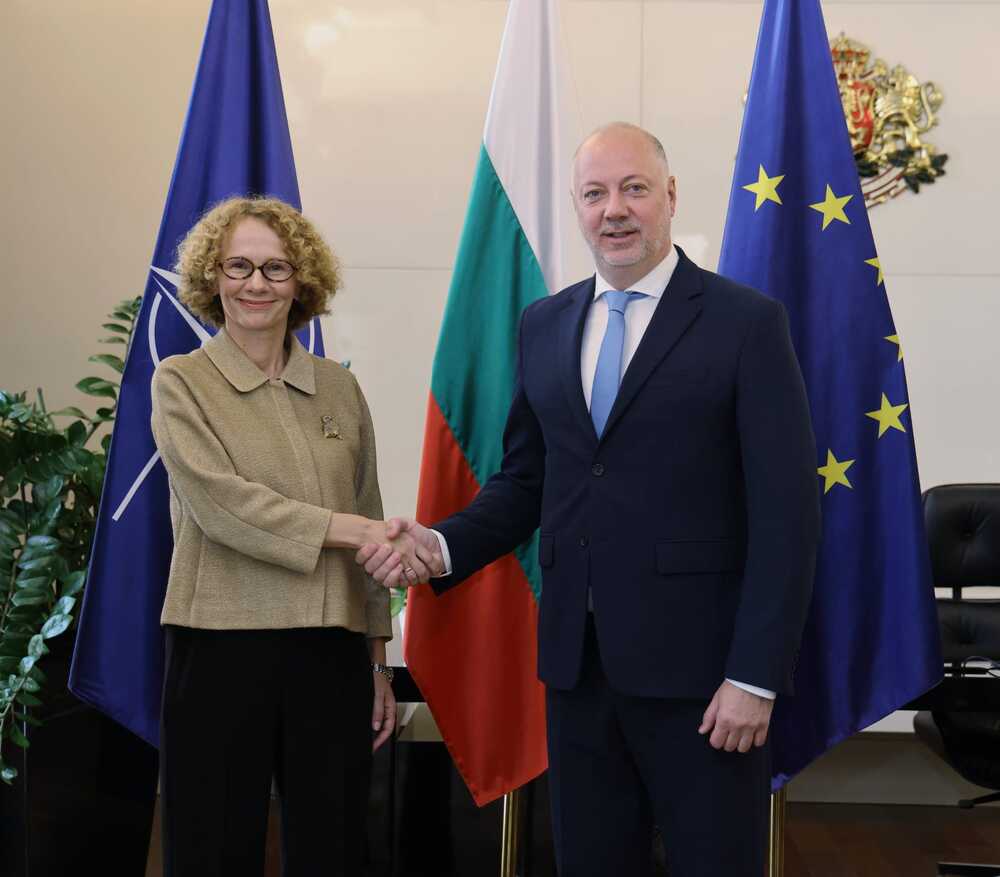site.btaPM Zhelyazkov Confers with NATO Deputy Secretary General Sekerinska


Prime Minister Rosen Zhelyazkov said during his meeting with NATO Deputy Secretary General Radmila Sekerinska that Bulgaria’s active role in NATO and collective defence is a guarantee for national security and for strengthening defence capabilities, the Council of Ministers said in a press release on Sunday . At the talks in the Council of Ministers, Zhelyazkov stressed that Bulgaria adheres to all the decisions of the Hague Summit, which he personally attended, namely strengthening deterrence and defence on the Eastern flank, especially in the Black Sea, increasing defence investments, continuing collective support for Ukraine, and deepening partnerships.
“Bulgaria is consistently among the Allies that, through their actions, defend and strengthen NATO’s unity,” Sekerinska is quoted as saying. She pointed out that Bulgaria has significant potential for developing its defence industry, with recent initiatives related to the SAFE mechanism and the announced contract with Rheinmetall serving as good examples.
Zhelyazkov underscored that Bulgaria has already surpassed 2% of GDP in defence spending, with a political consensus to gradually increase it to 5% by 2035. He highlighted ongoing modernization projects, including new Striker armored vehicles, two multipurpose modular patrol vessels for the Navy, the delivery of F-16 fighter jets, as well as plans to acquire advanced artillery, rocket systems, 3D radars, air and missile defence, and coastal defence systems.
Zhelyazkov emphasized Bulgaria’s role in strengthening NATO’s deterrence and defence posture on the Eastern flank and in the Black Sea. He pointed to the multinational battle group stationed in Bulgaria, led by Italy with contributions from several Allies, including North Macedonia, as a successful example of cooperation. He also stressed the importance of the Black Sea Mine Countermeasures Group in ensuring maritime security and freedom of navigation. Regarding regional security, including NATO and EU military mobility, the Prime Minister highlighted the strategic importance of Pan-European Corridor VIII, connecting the Adriatic Sea through Albania and North Macedonia to Bulgaria on the Black Sea. This, he said, is also vital for economic growth across the wider region, including the Western Balkans.
Security guarantees for Ukraine were also discussed, with Zhelyazkov insisting they must include sustainable support from both European and transatlantic partners. Bulgaria is ready to contribute as part of the Coalition of the Willing - for example, with joint mine countermeasures operations in the Black Sea and providing airspace and host-nation support for coalition air forces. He praised NATO’s leading role in the PURL initiative, which enables the delivery of US military equipment to Ukraine.
Zhelyazkov also voiced concern over ongoing instability in the Western Balkans, marked by political polarization, interethnic tensions, and institutional weaknesses, further exacerbated by malign external influence and hybrid activities. He underlined the importance of enhancing strategic communication both through NATO and bilaterally, stressing that Bulgaria is strongly committed to peace in the region and will continue contributing to KFOR and EUFOR Althea.
Sekerinska’s visit is part of NATO’s 20th civil emergency management exercise, held in Bulgaria between September 7 and 12. The exercise is jointly organized by NATO’s Euro-Atlantic Disaster Response Coordination Centre and Bulgaria’s General Directorate for Fire Safety and Civil Protection under the Ministry of Interior.
/YV/
news.modal.header
news.modal.text